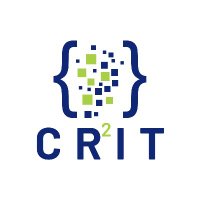
Nik Chaudhry
@nikchaudhry_
J.D. Candidate @Harvard_Law | Alum @Yale_CRRIT @EmoryUniversity
ID: 1651435302706204674
27-04-2023 03:57:27
32 Tweet
31 Takipçi
81 Takip Edilen

ICYMI, CRRIT's Reshma Ramachandran in Nature Medicine highlighting both the importance of U.S. FDA evidentiary standards & a recent study led by Maryam Mooghali, MD, MSc on the communication gap in NCCN guidelines around accelerated approvals nature.com/articles/d4158…



New piece in NEJM from Bishal Gyawali, MD, PhD, FASCO Aaron Kesselheim & Joseph Ross on how recent U.S. FDA draft guidance for accelerated approval cancer drugs can be strengthened to better balance early access to potentially effective cancer drugs & improving patient outcomes: nejm.org/doi/full/10.10…


This as a step in moving upstream to ensure taxpayers a fair return on their investment is a big deal. It also demonstrates (yet again) how it's indeed possible for the government to implement reasonable pricing provisions as Sen. Bernie Sanders proposed in PAHPA: sanders.senate.gov/press-releases…

Excited to hear Dr. @mellabarb of Yale CRRIT testify tomorrow morning in front of Energy & Commerce Democrats on drug shortages and the need for coordinated, targeted policy solutions that address the contributing complex & varied factors: energycommerce.house.gov/events/health-…

New CRRIT postdoc @mellabarb testifying in front of the Energy and Commerce Committee Health Subcommittee on legislative proposals to prevent and stop drug shortages, testimony at 38:30 youtu.be/TMCfjU8iQpw


In Petrie-Flom Center's Bill of Health, Reshma Ramachandran and I outline the case for reasonable pricing clauses attached to medical countermeasures developed with public dollars

Perhaps fate that our piece comes out on the same day Katalin Kariko & The Drew Weissman Lab deservedly receive the Nobel Prize for Medicine where we discuss the other lessons learned for the U.S. government to ensure that public investment supporting such discoveries also yields public power.

As Sen. Bernie Sanders asks the NIH Director nominee if she would commit to reinstating reasonable pricing requirements to taxpayer-funded treatments, here's what Nik Chaudhry & I wrote on why this is a critical step for ensuring affordability & accessibility, one of her stated goals.

“There are good reasons for FDA to reject unproven drugs. 1st, doing so will help promote generation of strong evidence to support the treatment decisions facing all patients, and 2nd, it will minimize interference w/ promising drug development.” Out now Health Affairs Forefront

Holly Fernandez Lynch & I along with several clinicians, lawyers, public health experts & patient advocates sent a letter to Congress outlining our concerns with the Promising Pathway Act, what can be done instead to foster R&D of rare disease drugs, & confirm for certain that they work.



Last post before the holiday - with the amazing legal team at Democracy Forward, Joseph Ross & I filed an amicus brief on the Relentless v U.S. Commerce Dept. case before #SCOTUS on the undue public health impacts for the FDA should #Chevron deference be overturned bit.ly/ramrossamicusr…


Great discussion happening this Tuesday Yale Law School Solomon Center @ YLS at noon, featuring Reshma Ramachandran How can the SCOTUS decision on Chevron Deference doctrine impact FDA/health regulation?

📖Check out this new publication from Solomon Center Faculty Affiliate Joe Ross, Reshma Ramachandran, & Nikhil Chaudhry on "Overruling Chevron and FDA Decision-Making," out now in the in the Yale Journal on Regulation: yalejreg.com/nc/overruling-…


🚨Out today in JAMA Network Open, 🚨 Nik Chaudhry & the team examine temporary member participation in U.S. FDA #AdComms—their voting recommendations & concordance with FDA regulatory decisions. Read our synopsis in the thread below. 📜 Link: jamanetwork.com/journals/jaman…




